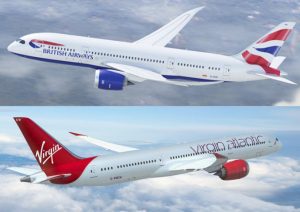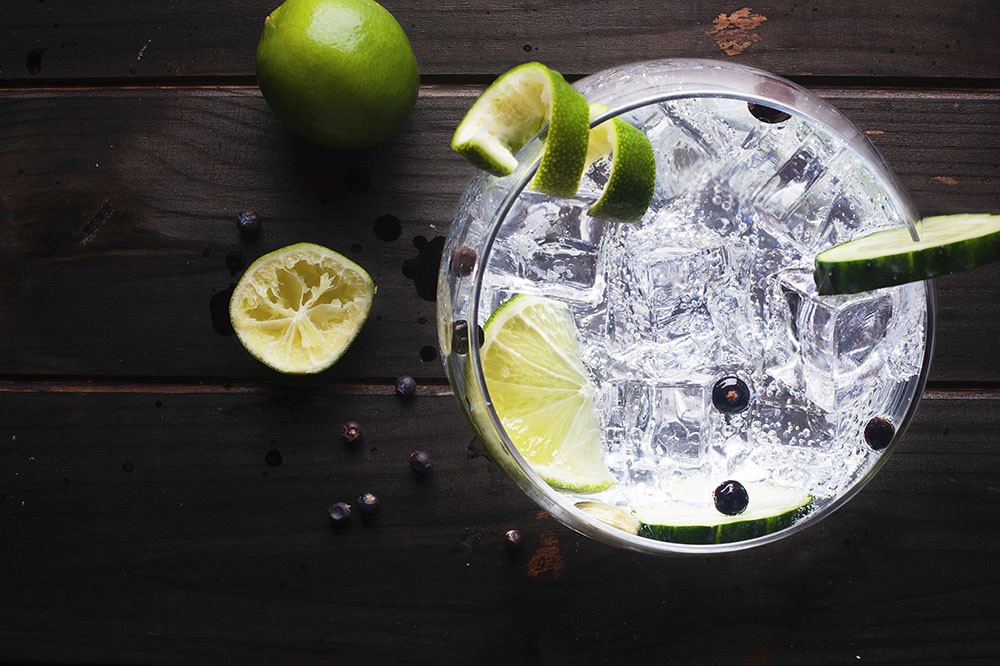
The ‘Gin and Tonic Effect’
How to differentiate your business using the ‘Gin and Tonic Effect’
I’ve sat in many a brand strategy meeting where those around the table have been trying to get to the bottom of what their USP is. They go round and round in circles getting more and more frustrated. I can see all they want to do is get up and walk out the door.
My advice is, don’t spend time looking for something that 99% of the time doesn’t exist.
Your product or service is unlikely to be unique. Even so, in a crowded marketplace we all need to find a way to stand out from our competitors. We need to find a way to be different.
So, how can we do this?
Here’s an example.
You and I are both flying to New York.
We both chose different airlines.
I am flying British Airways, you are flying Virgin Atlantic.
We are both flying on the same airplanes – a 787.
The cost is roughly the same.
Both airplanes are using the same fuel.
Flying from, and to, the same airports.
The same air traffic control, same route, the staff had the same safety training and both ‘planes get to their destination safely and on time.
So, what’s the difference?
The difference is in the different personalities of the two brands.

As soon as you see the logo on the tail you know you are in for a different experience.
Your brand creates your difference
And it’s not just airlines that rely on their brand to create the difference.
Many other businesses offer very similar products and services to their competitors.
Two Estate Agents, for instance, may be operating in the same territory. Selling the same housing stock at roughly the same prices, charging the same commission, marketing through the same channels to attract the same buyers.
What’s the difference?
Again, it’s down to each Estate Agent’s personality, values, behaviour and reputation. The brand is what makes each one different.
And what’s the difference between high street banks, mobile phone companies and professional services like accountants and solicitors?
Very little if you think about it. Apart from their brands.
What is a brand?
Think of a brand as a person.
When you meet that person for the first time, you judge them by how they speak, their behavior, what they believe or the principles they stand for and what they look like.
Their tone of voice – how they speak.
Their vision – what they believe.
Their values – how they behave.
And their identity – how they look – how they are dressed.
Importantly too you will find out about their reputation – what do others say about this person?
A brand is exactly the same.
At its core, a brand will have a set of values; it may be trustworthy or honest or perhaps risk-takers or an innovator.
It will have a tone of voice – formal or informal, authoritative or friendly for instance.
A vision – a belief in what the brand has set out to achieve. What is its purpose?
And its identity – the way it looks –its branding: the logo, colours, typeface and style of imagery.
And a brand’s reputation – what people are saying about it – is vital. Think about how we judge Volkswagen, Facebook, Google when we hear that they may have broken our trust.
How to find the difference
Let’s call it the ‘gin and tonic’ effect.
Back to our airline flights. We have returned from our trips and swap notes. You ask, “how was your flight?”
I don’t answer “it was fine. The plane didn’t break down and we didn’t crash – we landed on time”. We expect all this at the very least!
What I might say is “the service was great. On the way out, I asked for a gin and tonic and on the return flight they recognized me and remembered my drink. They even added a slice of lemon from first class!”
So, it’s the little, ‘added value’ extra elements that get remembered and talked about.
It’s these little things that will differentiate your brand from your competitors’.
The values airlines stand by, such as reliability, safety, efficiency are all very important, but these are rational values. A brand should consider emotional values too to help it differentiate itself.
What is your brand’s Gin and Tonic?
Here are 5 steps to work through that will help you to find your difference.
1. Make time to sit down with your directors and re-visit your company’s brand values or define them if they don’t exist.
2. Aim for no more than five or six values to describe your brand’s personality. What you believe in and stand for.
3. Be honest – don’t pretend the brand is ‘passionate’ if it’s not.
4. Think about your brand’s vision. What is its purpose?
5. Now define your point of difference.
If you have a truly unique proposition, like you produce anti-cholesterol bacon butties for instance, then you are pretty much home and dry.
But if your products or services are similar to your competitors’, you’ll need to dig deep and find a difference.
Remember, it may well be an emotional, rather than rational, point of difference – like the Gin and Tonic.
How defining your brand can help your business
Creating a strong brand or not can be the difference between a business thriving or disappearing. So, in that context why wouldn’t you take time to go through the five steps above?
The rewards of a strong brand:
- Consistency of brand engenders trust. Trust is needed to move a prospect to become a customer.
- Customers understand and remember your brand and what it stands for. When the time is right for them to buy, you are the company of choice.
- Customers become engaged and loyal. Their lifetime value to your business increases. They recommend you to others.
The benefits of a strong brand don’t just apply to customers and prospects, it’s vital for your employees too:
- A strong brand makes your company a great place to work, helping you to attract the best skilled employees.
- It reduces employee churn, and therefore costs associated to re-employing and training
- You and your staff have confidence and pride in the business when all share the values and vision
- Your employees (even those who are not customer facing) are your best advocates for your business
If you’re finding this difficult – you’re not alone
Defining your brands personality is not an easy task, especially when you are so close to your business.
Consider getting help from a brand expert. This is exactly what I do. I act as a facilitator. I ask questions about what you offer your customers, what you do well, why you do what you do. I delve deeper to help you paint a picture of your brand.
If you like the sound of this and feel an informal chat would help, give me, Nick Ovenden, a call on 07876 293885 or 01737 819687 or email me.





Steve
What a great read that article is, really captivating, clear and effective. Your analogy of the airline is spot on!
Karen Espley
Fantastic article Nick. Really useful and clear